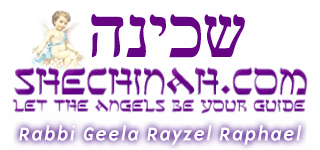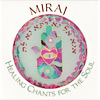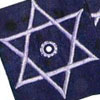Ger Toshav
A Proposal for Intermarried & other Allies in our Midst
In recent years articles have appeared in Jewish newspapers (Philadelphia Exponent 1992) reporting on the large number of non-Jews joining synagogues, sitting on the shul Boards, and raising Jewish children. Various synagogues and Temples are dealing with this dilemma in different ways. Sometimes the non-Jews receive membership, sometimes the non-Jews receive aliyot, and in some cases they are also allowed to hold office. At the same time though, -some are not...the picture is anything but consistant, and in most cases the non-Jew is accepted uneasily. The time has come to wrestle with this situation and address how to acknowledge non-Jews as part of our communites including ways to welcome them, while drawing our boundaries of difference. The ancient Biblical catagory of Ger Toshav- "resident alien"- may offer a solution; it has been applied at various times throughout Jewish history. It is time to renew and transform this ancient category.
Background and Sources:
There are five places where Ger Toshav is mentioned in the Torah. They are Exodus 12:45, Lev. 25:6, Lev. 25:40, Lev. 25:47 and Lev. 25:55. This term Ger Toshav is translated as "temporary resident", "landed immigrant", "resident alien" in other words someone who has a "green card" and is accepted into the society except for a few key privileges. The first reference to Ger Toshav (Exodus 12:45) is found among the discussion about who may eat of the Passover sacrifice. The Gerrim Toshavim and employees/laborers are forbidden. In Leviticus 25:6 however, G!d is "discussing" the rules of the Sabbatical year, and with it a promise of abundance. We are obliged to share our food produced during the Jubilee year with our slaves, our hired laborers, our guests and all that live with us (Gerrim Toshavim). This implies that these "foreigners" are an integral part of our communities.
Lev 25- 55 lays out the rules for what to do if an Israelite comes upon hard times. Lev 25: 35 states that "if one of your countrymen becomes poor and is unable to support himself among you, help him as you would an stranger or resident alien, so he can continue to live among you." It goes on to say that this means "do not make him work for you, do not take interest from him, but let him live with you." (Lev 25:40) gives us more information about a Ger Toshav by defining further what to do if an Israelite falls on hard times."If your brother falls on hard times and sells himself to you do not impose a slave's work on him, he shall be [treated] like a guest or hired man and work until the Jubilee year." In other words the assumption here is that the community of Israel accepts and welcomes the stranger and resident alien and that our own brethren deserve to be treated as well.
However in Lev 25:47 a barrier is created between an alien and an Israelite by a description of what to do for a fellow Israelite:
If some stranger or settler among you grows rich, and your brother falls on hard times, and is in difficulties with him and sells himself to him, to his stranger or settler among you or to one of your descendents, he shall enjoy the right of redemption after sale, and one of his brothers may redeem him.
This passage indicates that Israelites are not to be at the mercy of
any strangers. What is interesting here in all of these cases is that
the Torah assumes that there are a number of different types of people
that live in our communities, slaves, laborers, and resident aliens (Ger
Toshav). They are accepted fully in some respects, but not others.
Further to this discussion in Numbers 15, God is talking to Moses describing
what the Israelites should do when they finally enter the land. They are
to bring sacrifices for payment of vows and/or voluntary gifts to one
of the feasts. Numbers 15:14-16 spells it out clearly,
Any stranger living among you, or among your descendents, will also make a burnt offering, and appeasing fragrance to YHVH: just as you act so must the assembly. There shall be only one law for you and the settler among you. This is a law that shall bind your descendents: before YHVH, you and the settler alike. There is to be one law only, and one statue for you and the stranger that lives among you.
In effect what this is saying is that the strangers are bound by our laws and are accepted in some way as part of our communities.
Zechariah, the prophet, makes a statement regarding the nations that
will come to worship G!d:
And it shall come to pass, that everyone that is left of the nations that have come to against Jerusalem, shall go up each year to worship (sacrifice) to the King, the L-rd of hosts and to keep the feast of booths. And whoever does not come up of all the families of the earth to Yerushalyim to worship the King, the Lord of hosts upon them shall be no rain. And if the family, of Mitzrayim does not go up, and does not come they shall have no overflow. This shall be the plague, with which the Lord will smite the nations that shall not come up to keep the feasts of booths.(Zechariah 14:16-18)
In their book, the Path of the Righteous Gentile, Chaim Clorfene and Yaakov Rogalsky explain, "during the periods when the Jewish people lived in the Holy Land, their responsibility for teaching the Gentiles the seven commandments were generally fulfilled. During the 410 years that the first Temple stood and the 420 years that the Second Temple stood, Gentiles who wanted to dwell in the land of Israel had to agree to fulfil the Noachide laws and had the right to enter the Holy Temple and offer sacrifices to G!d." (p16)
In the Rambam's discussion of the matter in the Mishnah Torah, we find in K'doshim, Laws of Forbidden Relationships14:7 the definition of a Ger Toshav is a person that was a former heathen who has since forsaken the worship of idols and agreed to observe the seven Noachite commandments. Ger Toshavim are not circumcised or immersed. Rambam further states that this category only applies during the time when the Jubilee Laws are in effect. This implies that the Jews are under their own sovereignty and have the power to issue visas and make the rules, so to speak. (Another example of a law that applies only when Jubilee is in effect are laws of ritual purity.) The return to a time when Jubilee laws are in effect are considered almost as the days of the Mashiach, in other words they do not apply in our time.
Rambam clarifies for us (Mishnah Torah, Laws of Kings 8:11.) that the people living by the seven universal Noachite commandments agree: #1. not to worship idols, #2. not to curse G!d, #3. not to kill, #4. not to steal, #5. not to engage in sexual immorality, #6. not to eat the limb of a living animal, and #7. to establish courts of law to enforce them. "They become one of the Chasidei Umot ha-olam, the Pious ones of the Nations, and receive a share of the eternal world" (p. 41) Although the Children of Noah only accept the commandments for the Seven Laws, nothing prevents them from observing most of the 613. The ones that are forbidden to them are: observing/resting on Shabbat and Holy days like the Jews; Talmud or Halachic study that pertains to the Jews worship of G!d; receiving an aliyah or writing a Torah scroll; using or making tefillin; posting a mezzuzah. (Laws of Kings 10:9) (Clorfene and Rogalsky cite the commentary of Radvaz on 10:10 as well - p42) According to Baba Kama 38a, when "one of the Children of Noah engages in the study of the Seven Universal Laws, he is able to attain a spiritual level higher than the High Priest of the Jews, who alone has the sanctity to enter the Holy of Holies in the Temple of Jerusalem." (p43) In other words a Ger Toshav can live in some ways as a Jew, and can achieve a very holy state if they take their responsibilities seriously.
Two other categories must be examined in order to complete our discussion of what it takes to affiliate with the Jewish people. They are proselytes and slaves. For a non-Jew to enter the covenant of the Jewish people three things, in addition to being taught the commandments, were traditionally demanded. They are immersion, circumcision, and sacrifice. Sacrifice has been suspended since the destruction of the Temple, however immersion and circumcision were still required in the Mediaeval codes. To have a proper immersion, we must have witnesses to the mikveh of a convert, this verifies the act. However, we are only bound to accept a person's word for their conversion if they are new to town and we haven't seen their papers or known their Rav - but only if they are known to be obeying the mitzvot. In other words we can take a person's word for it, in some instances, if they claim that they are Jewish. A proselyte is considered newly born in every respect and completely accepted in the Jewish community.
Slavery was another doorway in which non-Jews could enter into membership of the Jewish community. A slave was one who lived among the Israelites, in the households. A slave had to immerse in a mikveh before coming to live with a family. After the mikveh and the acceptance of certain commandments, slaves had a liminal status— they left their idolatrous background but they didn't enter Israel. (k'doshim) However, once they were freed and married an Israelite, they were automatically considered an Israelite in every respect! This was because they had already undergone the immersion and had been living as a Jew.
Slaves were taught the same commandments that were taught a woman. These commandments which were incumbent upon a slave taught him/her how to behave in a Jewish household. They were not to be taught Torah, and were not obligated for positive time bound mitzvot, just as women were not. If a slave refused to accept the commandments and or be circumcised, they were to be sold or freed after twelve months. It was not permitted to keep a heathen under a Jewish roof any longer without conversion.( 8:12 Acquisition)
There is another issue however, that is central to the process of transformation of status. The Kavannah, the intention for the ritual immersion must be clear. Further in the Book of Acquisition, Slaves 8:20, Rambam codifies that, "If an Israelite seizes a heathen who is a minor, or finds a heathen boy, and immerses him with the intent that he becomes a proselyte, he becomes a proselyte; if for the purpose that he becomes a slave, he becomes a slave; for the purpose that he becomes a free man, he becomes a free man." Acquisition 8:18 also supports this by stating that if an Israelite buys a slave from heathen, and the slave uses the mikveh to become free rather than as a slave, he becomes free. Freed slaves have the status of proselytes, full participants with the Jewish people. . We see from this that a heathen or a slave has within their jurisdiction at the moment of immersion the power to transform their destiny, by virtue of their intention for the immersion alone, to be fully accepted into the Jewish community.
What is the practical application of this today?
In his book, Questions Jews Ask, published in 1956, Mordechai Kaplan proposes that the status of Ger Toshav be examined in order to encourage Jewish missionary activity. "It might be well to reinstate an idea which is found in traditional Jewish codes, but which has received theoretic formulation rather than practical application. I refer to the idea of the Ger Toshav. Jewish codes recognize two kinds of proselytes, the ger tzedeck, who seeks complete identification with the Jewish People, and who undertakes to abide by all the requirements of Jewish law, and the Ger Toshav, who rejects idolatry, and abides by the other six moral laws that Judaism regards as mandatory for all mankind." ....."Jewish missionary activity effort in our day should, therefore, not aim to persuade converts to identify themselves with the Jewish religious community. ...All converts should renounce what from the Jewish point of view, is idolatry, e.g. the identification of G!d with any person or object with corporeal attributes. They should seek salvation as a way of ethical advancement. ....The idea that God as the Power that makes for salvation is of such vital importance in our day that Jews should endeavor to gain its universal acceptance by men of all faiths."....We Jews can moreover render a universal service to mankind by promulgating the idea that all Peoples can help their members achieve salvation."(pp. 479-480)
In agreement with Kaplan, I believe a case can be made for the establishment of a redefined category of Ger Toshav. Given the number of intermarrieds and non-Jews within our midst, we must do something to welcome them. We live in a time that the State of Israel does exist as a sovereign nation and we can begin to apply some of the Jubilee laws. We also must acknowledge our sovereignty over our own communities and synagogues. Just as women have changed their status within Judaism by study and practice, it is incumbent upon us not to be bound by prior limitations of status.
We are also confronted by the alarming statistics of intermarriage and just do not know what to do with the numbers of unclassified people that join our ranks. There are thousands of people who have married Jews, having agreed to raise their children Jewish, or are participating in our communities without undergoing formal conversion. We are uncomfortable calling them Jews, yet they need to be welcomed into our community and their status clarified. It is our responsibility to educate and welcome the resident alien. We need all the allies we can get.
I am suggesting that we borrow from our tradition which has taught us there are ways besides formal conversion to affiliate with our communities. I offer the following ideas for practical implication of the resurrection of the Ger Toshav category:
1. A mikveh for the non-Jewish man or woman before the wedding, given their intention to raise their children as Jews and that they will live as Jews. This person would be called a Ger Toshav and may or may not officially (dam brit and study) convert immediately. They would however be granted full status as Jews (if they were so inclined) if after the seven years they had lived in this manner.
2. A study program for intermarried couples, or non-Jews who were interested in Judaism, culminating in a public ceremony at the end of the process to welcome these Ger Toshavim into our communities. The ceremony may or may not include a full mikveh. However, I would suggest that water be used in some respect, perhaps as a footwashing ceremony (as Abraham welcomed his angelic guests) The participants would be encouraged to make some sort of offering, symbolic of the sacrifices that the resident alien used to make to the Temple, to the synagogue. These people will be taught the Seven Noachite commandments and encouraged to follow them, and persue further study. The prohibitions (mentioned above) regarding the Children of Noah would still apply.
3. Create New Ceremonies: Even if no formal study program is undertaken, but the non-Jew has shown their love, support, and loyalty over a period of time, some ceremony to admit them to our ranks is in order. Here are two examples:
At Leyv Ha-ir Reconstructionist Congregation In Philadelaphia, in 1992, I created a simple ceremony to be done at the end of a Friday night service for John who was to become a Ger Toshav. He was clearly a non-Jewish ally of our community, a bridge from our Jewish community to the non-Jewish world. I had John answer several questions: Did he agree to learn more about us/Israel? Would he be our translator/ally to non-Jews? Would he observe the Seven Noachite Laws? etc. He agreed not to run for president of the congregation or to be called to the Torah. Using his hands he actually formed a bridge with a member of the congregation, his sponsor, to symbolize the role he was assuming.
At Achayot Or, a women's community that meets once a year, a non-Jew was "woven" into the community. The person was put into the center of the room and a red ball of yarn was passed from person to person while entangling the non-Jew. In this way she was symbolically bound to the community and woven into the fabric of our lives. She then read a statement of her commitment to the community. She made a donation to the group and she received presents on her confirmation as an official non-Jewish member of Jewish group, a resident alien a.k.a. Ger Toshav.
This ceremony would be sponsored by the community as a way to welcome these allies, to encourage their study, to recognize their affiliation, friendship and support. This ceremony is not an individual conversion process, but a welcoming and sanctifying of the resident alien in our midst.
The creation of this new status would by no means preclude the conversion process. In fact in some cases, if the process is taken seriously, this could be seen as a half-way step to full conversion. This solution is an attempt to clarify the status of those who love and support us and join our communal ranks.
R. Myron Kinberg z"l offers his own blessings for the status of Ger Toshav.
For more information, email me at

or call 215-237-2955









